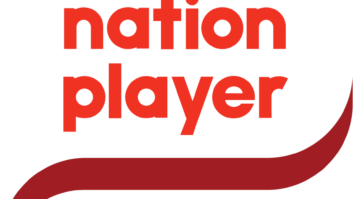Filing fees, moment method modeling and broadcasting phone calls
Apr 1, 2009 12:00 PM, By Harry Martin
The FCC’s new application fee schedule will go into effect on April 28. There is a long history of starts and stops behind this change.
In September the Commission issued an order increasing all application fees across the board. This was mandated by Congress and was not open to public comment. While the bump in fees amounted to a 4.9 percent increase, it was pegged as an effort to adjust for cost-of-living increases, and it did not attract much attention. That was especially so because the increases were not to take effect until 90 days after the FCC notified Congress of the changes. Then, on Jan. 29 a notice appeared in the Federal Register spelling out the new fees and indicating they were effective as of that very day, Jan. 29. But that date was suspended because the fee calculating function in CDBS was not reflecting the new fees.
The FCC’s Office of Managing Director (OMD), which is generally responsible for fee collections, later advised that the 90th day after Congressional notification was really Dec. 30, so by the terms of the Commission’s September 2008 order, the new fees were supposed to have taken effect then. But with the end-of-year holiday season, the change of administrations, or other unknown factors, the Dec. 30 date came and went. By the time the Commission got the notice into the Federal Register it was Jan. 29.
The notice as originally sent to the Federal Register specified the Dec. 30 effective date, but personnel at the Federal Register pointed they could not publish an announcement about fees that would have a retroactive effect. So it was decided the Federal Register notice should show Jan. 29 as the effective date.
However, the FCC was not able to implement the new fees in January, so despite the Federal Register notice the agency has continued to charge the old fees. But the latest announced implementation date, April 28, is firm. The new fee schedule can be accessed on the FCC’s website and will be incorporated into CDBS as of April 28.
Moment method computer modeling in effect
The changes in the AM technical rules to permit moment method computer modeling for some directional antenna proofs have finally taken full effect. Those rules, adopted in September, were held up because the Commission had to revise some of its application forms to accommodate the changes, and those revisions in turn had to be reviewed and approved by the Office of Management and Budget. In early February that process was completed, so AM licensees (and their consulting engineers) can now take advantage of the less onerous method of proving in a DA pattern.
Unauthorized broadcast or recording of telephone calls
FCC fines are levied regularly for telephone calls broadcast or recorded without prior consent. In a recently-reported case involving a West Virginia station, a fine was decreased to $3,200 from the $4,000 standard because the licensee was a first-time offender. The fine arose from a morning radio stunt called �Wake Your Lazy Carcass Up.� As the name suggests, the radio station randomly selected victims from a phone book, called them very early in the morning putting their reactions on the air. Needless to say, for the full comedic effect, the station did not pre-call and pre-clear its victims. The obviously angered recipients filed complaints with the FCC and the FCC dutifully fined the station. In another case a Michigan station was fined $6,000 for recording a message for broadcast without permission even though the message was never put on the air.
Dateline
June 1 is the deadline for submission of biennial ownership reports by radio stations in Arizona, DC, Idaho, Maryland, New Mexico, Nevada, Utah, Virginia, West Virginia and Wyoming.
June 1 is the deadline for radio stations in Arizona, Idaho, New Mexico, Nevada, Utah and Wyoming with more than 10 full-time employees to electronically file their Broadcast EEO Mid-Term Reports (Form 397) with the FCC.
June 1 is the deadline for radio stations licensed in the following states to place their annual EEO Reports in their public files: Arizona, DC, Idaho, Maryland, Michigan, New Mexico, Nevada, Ohio, Utah, Virginia, West Virginia and Wyoming.
Martin is a member of Fletcher, Heald & Hildreth, PLC, Arlington, Virginia. E-mail:[email protected]












